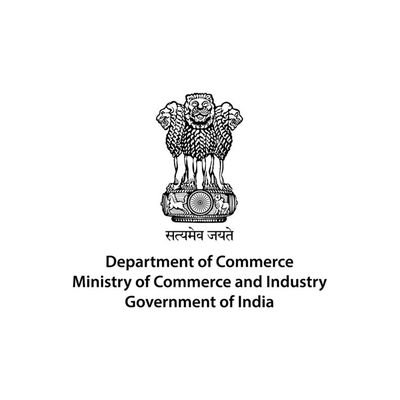
Commerce Ministry seeks ₹2.5K cr more to back exporters
NEW DELHI : The Commerce Ministry has sought an additional ₹2,500 crore to settle arrears related to its interest rate equalization scheme that aims to alleviate stress among exporters by compensating them for a portion of the interest they pay on loans. The move aims to mitigate the challenges small exporters face in view of rising interest rates and diminishing exports.
The borrowing rate for most micro, small, and medium enterprises (MSMEs) has already crossed the double-digit mark, exporters said.
“We ran out of money for the interest equalization scheme and asked for an additional ₹2,500 crore from the finance ministry. The plan has received approval from finance, but the final call would be taken by the cabinet,” said a government official on the condition of anonymity. Queries sent to the spokespeople for commerce and industry, and finance ministries remained unanswered.
The additional requirement of ₹2,500 crore for the scheme in FY23, if cleared by the cabinet, means the total spending by the government would be a a record ₹4,876 crore, almost double the allocation made for the year. The government allocated ₹2,932 crore in FY24 for the interest equalization scheme, up by about a fourth of ₹2,376 crore allocated in FY23.
The Reserve Bank of India (RBI) had raised key policy rates six times in a row to tame inflation before it decided to pause in April. The central bank had hiked the repo rate cumulatively by 250 basis points (bps) since May 2022 to 6.5%.
The allocation for the interest equalization scheme was already increased sharply to ₹2,376 crore compared with ₹1,900 crore in FY22 and ₹1,600 crore in FY21 as the war in Ukraine and the covid-19 pandemic drove central banks globally to increase the cost of borrowing to arrest record-high inflation.
India’s goods exports fell the steepest in three years in April thanks to weakening global demand and declining commodity prices. Exports declined by nearly 13% in April to $34.66 billion from $39.70 billion in the year-ago period. Besides, merchandise imports also fell by 14% to $49.90 billion during the month, from $58.06 billion a year earlier.
Explaining the benefit of the interest equalization scheme, FISME’s Animesh Saxena said that exporters receive a subsidy on interest rates under the scheme.
“If I have a working capital limit from a bank and if the bank is charging 8% from me and the subsidy is 3%, some banks will charge 8% of whatever I have borrowed and every quarter, they will refund me the 3%. Some banks only charge 5% at the outset after adjusting the subsidy,” Saxena said.
He further added that the scheme is crucial for exporters because, internationally, interest rates are about 4-5%.
“Indian companies, when they were borrowing at 8-9%, their goods were becoming expensive. So, to give them some relief, the government brought this scheme so that Indian exporters do not face abnormally high prices,” he further added.
Amid demand for additional funds, Saxena said that this scheme helps exporters remain competitive, but the demand scenario has to improve for India’s exports to grow at a healthy pace.
Barring four countries, exports to all top major destinations declined from 4% to 43% in April this year compared with last year.
Driven by petroleum product exports, outbound shipments to the Netherlands, UK, Saudi Arabia, and Italy grew 23%, 20.7%, 8.38% and 3.59%, respectively.
Meanwhile, overall petro-product exports slipped by 1.38% amid a sharp decline in crude oil prices. Exports in the category last month stood at $6.48 billion compared to $7.86 billion in April 2022.

